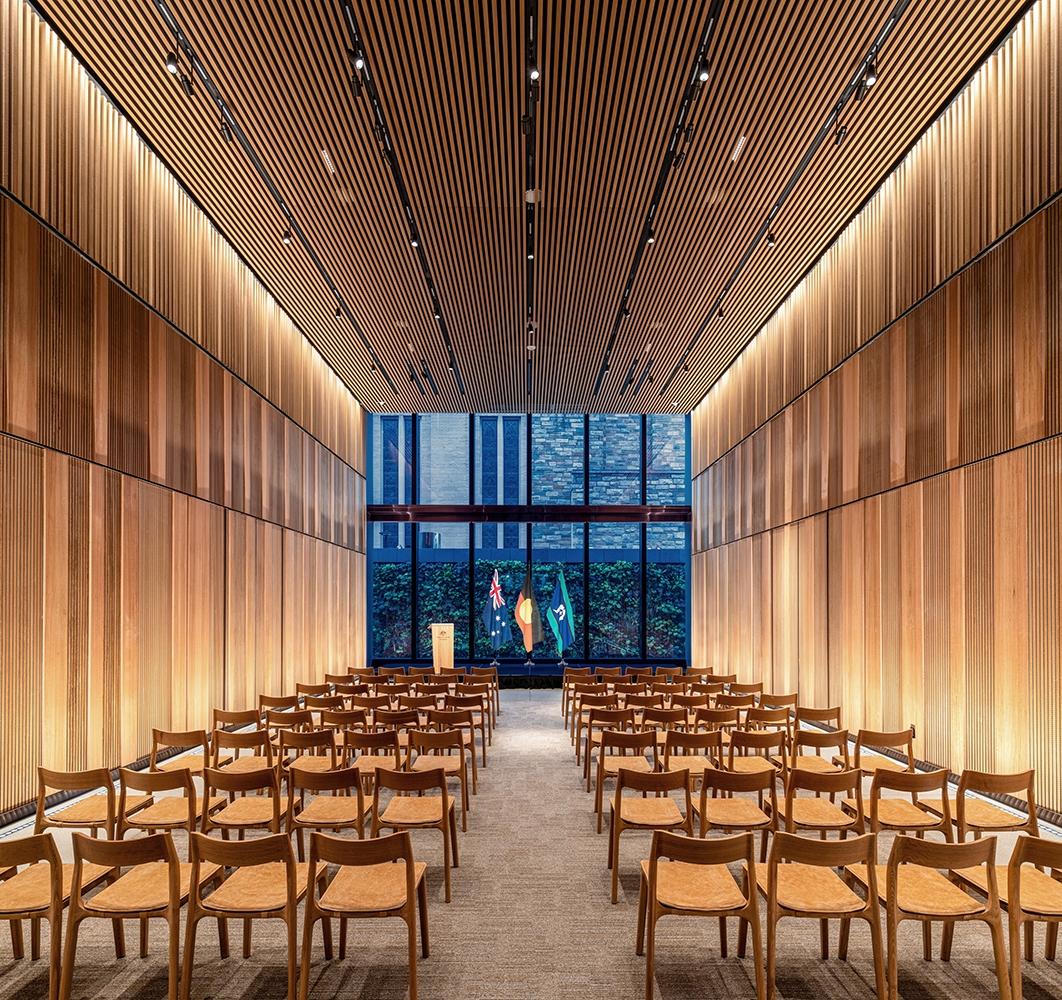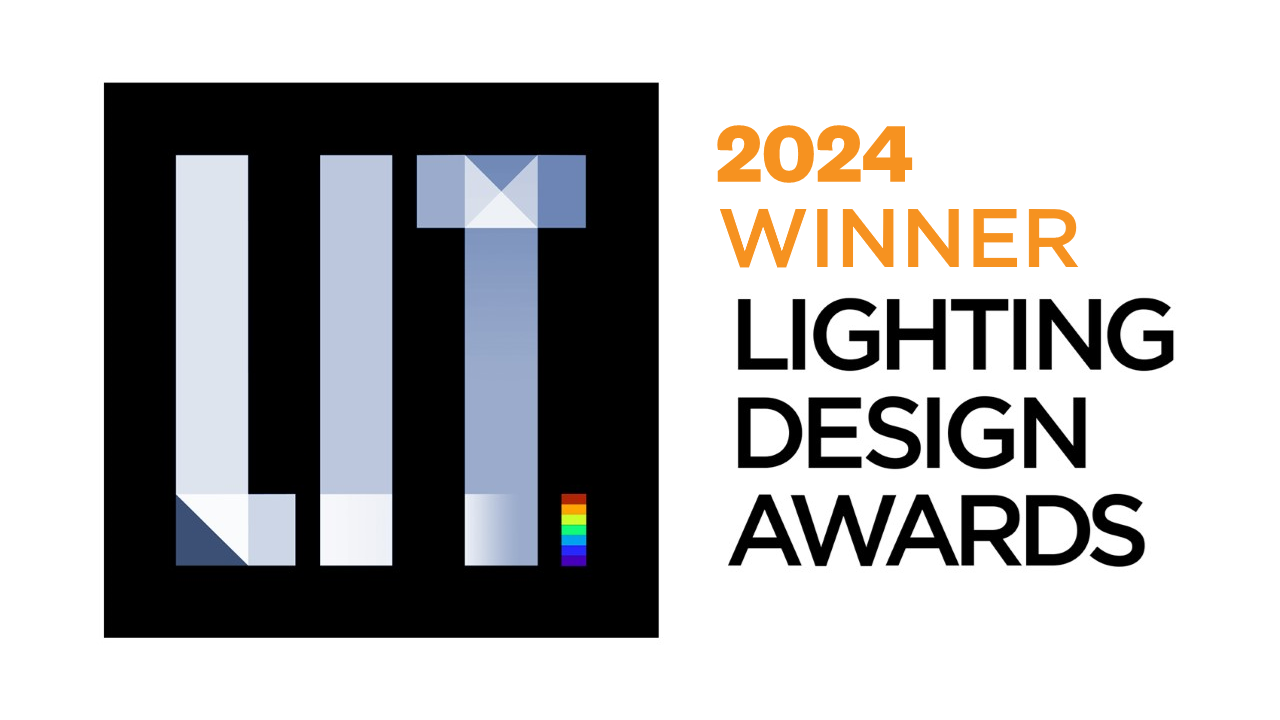Prize(s) Winners in Interior Architectural Illumination
Lighting Design/Product Company Electrolight
Lead Designers Jess Perry and Horatio Burton
Other Designer's names Andrea Schippers (One Source Associates LTD - Local Contributor)
Architecture Company Bate Smart Architects and KCCT (US Architect of Record)
Interior Design Company Bate Smart Architects
Client Australian Department of Foreign Affairs and Trade
Photo Credits Joe Fletcher (Image 6, 7, 8) , Ambridge Photography (Image 1-5, 9)
Completion Date 2023
Project Location Washington D.C, United States of America
Entry DescriptionThe Embassy of Australia in Washington D.C. stands as both an integral civic space and an enduring symbol of Australia.
The interior lighting design concept aimed to create a highly textural and inviting visual environment which was to evoke the vast and changing landscapes of the Australian geography of which the building celebrates. A key goal was the integration of light sources in a discrete manner within architectural details to highlight materials and celebrate volumes and forms.
The Embassy displays an impressive selection of artworks that emphasise the nation’s artistic excellence and rich Indigenous heritage. Gallery style lighting has been seamlessly integrated within the fabric of the building to provide a flexible lighting solution to the many varied artworks that are located throughout the foyers. These include floor standing sculptures, whimsical hanging clouds as well as more traditional art forms. The displayed artwork is intended to be ever changing.
A number of lighting solutions also required custom designed solutions including the typical office floor light fittings which needed to incorporate heating and cooling supply. A custom HVAC boot with sound damping filter was designed and manufactured to ensure fire ratings and acoustic considerations were met.
Sustainability ApproachThe project uses a smart (processor-based) dimming & controls system for lighting which allows for daylight harvesting, occupancy sensing, deploying sun-shades as well as load shedding; all of which contribute to the energy efficiency of the building. All light fittings use LED technology, which have long useful lives, are low maintenance and use low energy. The access to natural light also allows lighting to be dimmed throughout the day to further save energy and preserve life of the light fixtures.


